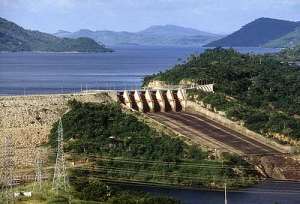
By Ave K. P. Kludze, Jr. Rocket Scientist and Senior NASA Engineer Ghana’s current economic situation warrants a critical look at other methods of electricity generation. Electricity generation and its distribution play a major role in a country’s development. In this technological era where electricity is king, maximum attention has to be paid to its generation if Ghanaians are to continue enjoying the comfort it brings. The Akpeteshi Solutions Ghana produces “Akpeteshi” and other forms of “ogoglos” or alcohol so it may want to investigate or research into how these “ogoglos” and other forms of hydrocarbons found locally could be used or incorporated into electricity generation in Ghana. To paraphrase Mr. Dan Lartey, Ghana may want to “domesticalize” electricity generation. Small power plants that use rubbish or “borlah” can also be considered in big cites such as Accra and Kumasi for the generation of electricity. Recent reports indicate Kumasi is looking into this option. Refuse or “borlah” collected across cities can be incinerated to provide the energy needed to generate electricity. This kind of plant will serve two purposes: it will dispose of refuse/borlah while at the same time producing cheap electricity for use. Foresight All power plants have life spans and Akosombo is no exception. The Kuffour administration has taken very giant and remarkable steps in Africa’s technological arena so it must continue to do so by looking for other creative ways of utilizing the natural resources of Ghana in meeting its national energy needs. Dependence on Akosombo should be gradually minimized. Akosombo, over time, might not be able to produce the kilowatts it generates today due the second law of thermodynamics. Things wear out and no power plant operates for life. With the current warning signs, Ghana should consider looking for other options. An example is to build small hydro-plants along the Volta River. These small hydro-plants could provide electricity to small sections of the country. A power plant does not have to serve the whole country or region; it could be built to serve a town or group of towns. Such small plants could reduce the demand on Akosombo, Kpong and may be Aboadze power plants. Another option even though expensive initially, is to recycle the water from Akosombo not by pumping but by re-navigation. In the re-navigation process, the course of the river may be changed or modified to feed, not necessarily Akosombo, but other hydro-plants. This technology was used in bringing water from the Rocky Mountains to California in the United States, to generate power. Last year, it was reported that the VRA owed Cote d’Ivoire $34M. This heavy amount could easily finance a re-navigation project. It should be noted that the cost involved in the re-navigation process is a one time cost. However, there are other environmental issues that need to be addressed if re-navigation is to be considered. Tariffs Increasing tariffs on electricity, as has been the practice in the past, is not the solution to Ghana or VRA’s problems. The common man should not be punished for judgements they have no control over. The VRA should focus its attention on finding ways to generate cheaper electricity rather than focusing its efforts on tariffs that will become worthless as the value of the cedi plunges. The tariff solution is only a short-term one. Long and permanent solutions should also be pursued alongside the short-term ones. The government or VRA should set up independent bodies to coordinate and organize conferences or forums on Ghana’s energy issues to evaluate solutions from experts and the general public. Future Investments If Ghana’s energy problem is to be solved at an affordable price, good use of its natural resources must be made a part of any permanent solutions. Other cost-effective sources of energy including solar, and other unconventional sources must be rigorously and equally considered and evaluated. The people of Ghana have benefited immensely from the investment made into the Akosombo project so the current government should be willing to allocate a considerable amount of resources if it is to solve the power problem permanently. For Ghana to become a leader in technology in the West African sub-region, reliable, cost-effective, and secured power must be made available at all times. In the land of darkness, computers, high-tech gadgets, freezers, bulbs, radios, TVs, and the “nikanikas”, electricity is King. Ghana must therefore give it the attention it deserves. No one man can solve this problem but collectively a solution could easily be found.




 Chairman Kingsley Owusu Brobbey calls for Privatization of Electricity
Chairman Kingsley Owusu Brobbey calls for Privatization of Electricity
 Train accident: Four more grabbed and remanded
Train accident: Four more grabbed and remanded
 Gov't to consolidate cash waterfall revenue collection accounts
Gov't to consolidate cash waterfall revenue collection accounts
 Gov't to settle lump sum for retired teachers by April 27
Gov't to settle lump sum for retired teachers by April 27
 Former PPA CEO granted GH₵4million bail
Former PPA CEO granted GH₵4million bail
 Dumsor: The darkness has exposed you; you’ll go down as the worst in Ghana’s his...
Dumsor: The darkness has exposed you; you’ll go down as the worst in Ghana’s his...
 Dumsor: The ‘incompetent’ person provided a timetable whiles those who came to s...
Dumsor: The ‘incompetent’ person provided a timetable whiles those who came to s...
 Defend, ensure NPP’s good works are ‘sold’ and highlight the ‘bad’ state of the ...
Defend, ensure NPP’s good works are ‘sold’ and highlight the ‘bad’ state of the ...
 Bawumia will rank high ahead of Mahama in any anti-corruption test — Salam Musta...
Bawumia will rank high ahead of Mahama in any anti-corruption test — Salam Musta...
 NPP trying to bribe us but we‘ll not trade our integrity on the altar of corrupt...
NPP trying to bribe us but we‘ll not trade our integrity on the altar of corrupt...
